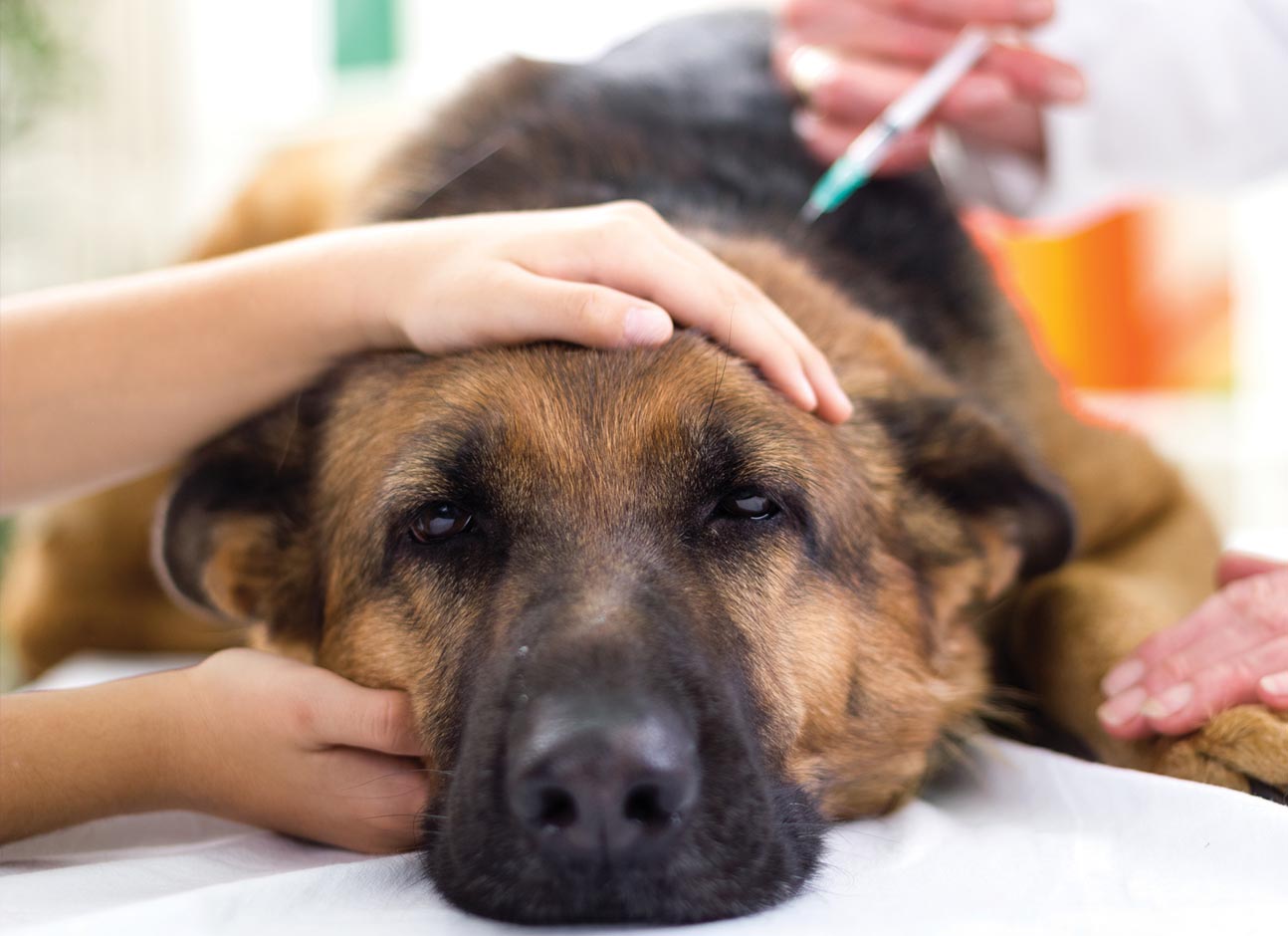Disease Features
Dirofilariasis primarily affects the pulmonary and cardiac systems. In most cases, the helminths complicate blood circulation and cause heart valve problems. Less commonly, the helminths settle in the abdomen, eyes, brain, and spinal cord. The helminths grow for seven to eight months and have a lifespan of about three years, during which they can lay up to 30,000 microfilariae per day.
Carriers
Blood-sucking insects, mainly mosquitoes and less frequently ticks, transmit the parasites. While dirofilariasis was initially more common in areas with humid climates, it has become increasingly widespread elsewhere. In urban areas, the infection can occur year-round through mosquito bites if an infected pet is present.
Infection Process
When an infected pet is bitten by a mosquito, the mosquito ingests blood and microfilariae. The mosquito then bites a healthy animal, transmitting the infection. Cats are less susceptible to this disease than dogs, and short-haired breeds are at higher risk than long-haired ones. Cats are less frequently affected because they typically live indoors and do not go outside. The disease progression is similar in both cats and dogs.
Symptoms
For the first three months after infection, the larva develops under the skin in fatty tissues before entering the circulatory system, where it matures into an adult worm over another three months. In both dogs and cats, helminths cause mechanical, allergic, toxic, and immunosuppressive changes. They obstruct blood vessels, damage the heart’s inner lining, impair valve function, and hinder blood circulation. This leads to toxic poisoning, swelling, and blood thickening due to allergies, which are more pronounced during the acute stage of the disease and less severe during the chronic stage.
Pets may experience itching at the site of the larva and may lick and scratch the area. With a small number of helminths, symptoms are minimal, including slight weight loss, weakness, and mildly elevated temperature. If the helminth population is larger, symptoms may include shortness of breath, interstitial swelling, cyanotic mucosa, hind leg weakness, and potential disruptions to kidney and liver function due to toxins.
Pulmonary forms of the disease are characterized by coughing, occasionally with blood, especially after exercise. Rapid breathing occurs due to circulatory system issues. For cats, gagging or vomiting are typical symptoms. Other symptoms include loss of appetite, reduced endurance during exercise, shortness of breath, constipation, and mucous membrane pallor in chronic heart failure cases.
Diagnosis and Treatment
Diagnosis involves tests and examinations. Treatment is medical, complex, and lengthy, aiming to eliminate the helminths, interrupt their development, and restore the pet’s health. In some cases, surgery may be necessary. Treatment is the same for any species and begins with eradicating adult helminths, followed by toxin removal and restorative therapies. Pets’ movements are restricted to conserve energy during treatment.
Rehabilitation Process
Close monitoring of the pet is required during treatment and recovery since decomposing helminths can obstruct blood vessels and disrupt kidney and liver function. Pets should avoid strenuous physical activity until fully recover.
Prevention Methods
The best prevention involves combating blood-sucking insects at home with mosquito nets and fumigators, and on walks with special sprays. The drug “Dironet” has proven effective as an antihelminthic and for destroying subcutaneous larvae. Apply it every three months during the insects’ active phase, but consult a veterinarian before use.
